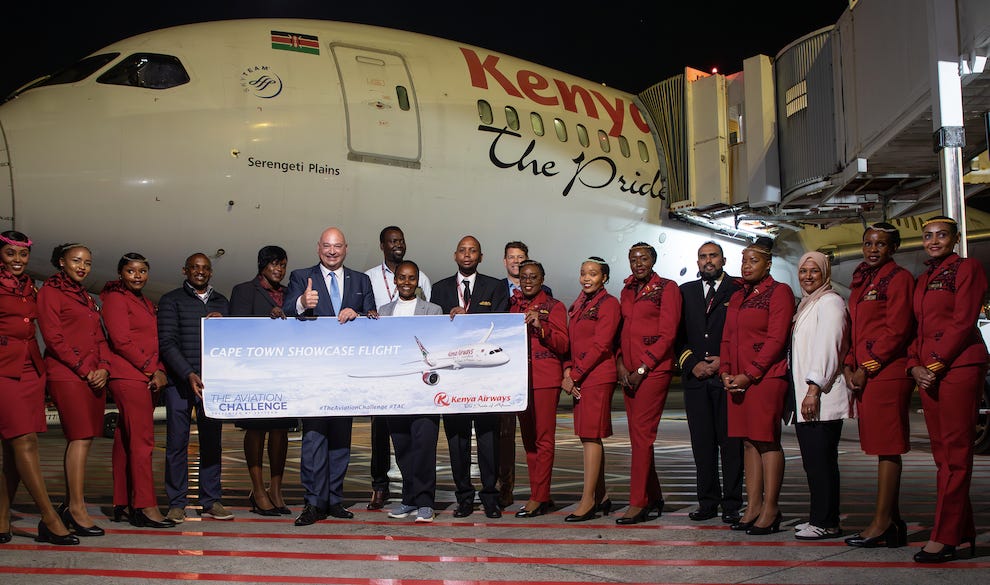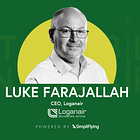#Sustainability20: Neste extends partnership with United to bring SAF to three major airports & more
Weekly roundup - 24/10/25
Each Friday, we publish a round-up of the 20 most important stories on sustainable aviation. You can see previous editions of #Sustainability20 here.
Industry updates
IATA has launched a new Integrated Sustainability Program (ISP), offering airlines a comprehensive certification framework to manage and validate their environmental, social, and governance efforts.
Lufthansa has argued that European airlines face a structural disadvantage against Gulf carriers due to high EU taxes, environmental mandates, and strict labour regulations.
Kenya Airways has operated the first flight in Africa to be powered by a 50% sustainable aviation fuel blend, marking a major step for continental green travel.
IATA has expressed concern that Singapore’s new sustainable aviation fuel levy could dampen air travel demand, preferring government incentives over passenger charges.
Policymakers in Latvia have urged the government to create a comprehensive legal framework for hydrogen, warning that its absence is hindering green energy development in aviation.
China Airlines has operated a ‘net zero’ flight from Taiwan to Bangkok using a 40% sustainable aviation fuel blend, carbon offsets, and eco-friendly onboard services.
CLIMATE WATCH: In first six months, cost of weather catastrophes on pace to break a record - The New York Times
A non-profit group has revived a US federal database tracking billion-dollar weather disasters, finding that the first half of 2025 was the costliest on record.
Infrastructure and operational efficiencies
Swedavia and Luftfartswerket have introduced a new curved approach concept at Stockholm Arlanda Airport, the first in Europe, to shorten flight paths and reduce emissions.
Sustainable Aviation Fuel (SAF)
Airbus and Cathay Pacific have launched a co-investment partnership worth up to $70 million to scale up SAF production in Asia and globally.
Gulfstream Aerospace has surpassed three million nautical miles flown on SAF blends across its fleet of corporate and demonstration aircraft.
Neste and United Airlines have expanded their partnership to supply SAF to three new major US airports: Houston, Newark, and Washington D.C.
Iberia has launched its ‘SAF Circle’ initiative, enabling corporate clients to reduce their Scope 3 emissions by supporting the use of SAF on their flights.
Maire’s subsidiary, NextChem, has been contracted to design a SAF plant in the UK that will convert municipal waste into 30 million litres of SAF annually.
Houston American Energy has partnered with BTG Bioliquids to develop SAF projects using fast pyrolysis technology to convert woody biomass waste.
XCF Global and FlyORO have signed a memorandum of understanding to collaborate on solving the SAF supply chain and blending inefficiencies worldwide.
New technology: Electric and Hydrogen
Air New Zealand has begun a series of test flights with Beta Technologies’ Alia CX300 electric aircraft as part of its Next Generation Aircraft programme.
Loganair has confirmed it will pursue hydrogen engine conversions for its fleet, aiming to service Barra Beach with the new technology in the early 2030s.
Korean Air has signed a deal to acquire up to 100 of Archer Aviation’s Midnight eVTOL aircraft, designating the airline as its exclusive partner in South Korea.
Elysian Aircraft and lessor TrueNoord have formalised a collaboration to assess the commercial potential of the E9X, a 90-seat battery-electric aircraft.
Cosmic Aerospace is developing the Skylark, an all-electric 24-seat aircraft designed for regional routes, with a target entry-into-service date of 2030.
The Baltic Sea Region HyAirport project has held a conference to advance the use of hydrogen in aviation, with Hamburg Airport testing a prototype hydrogen baggage tractor.








